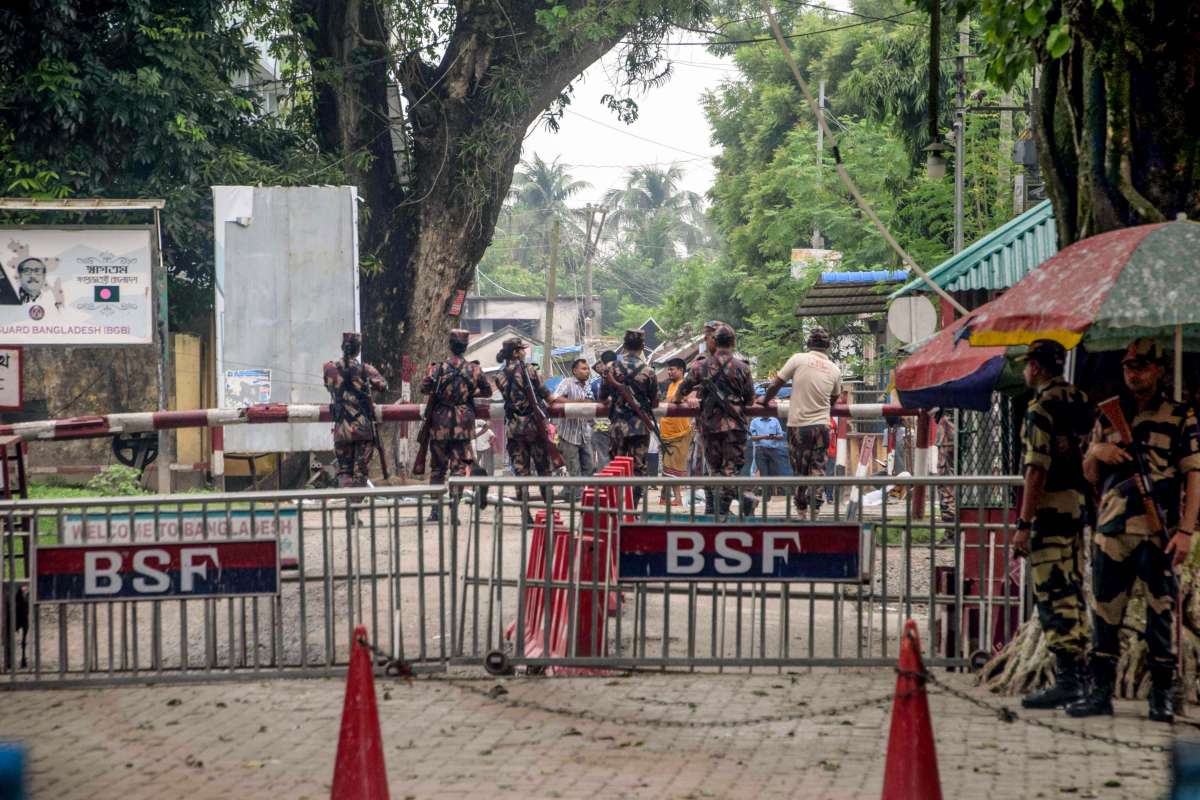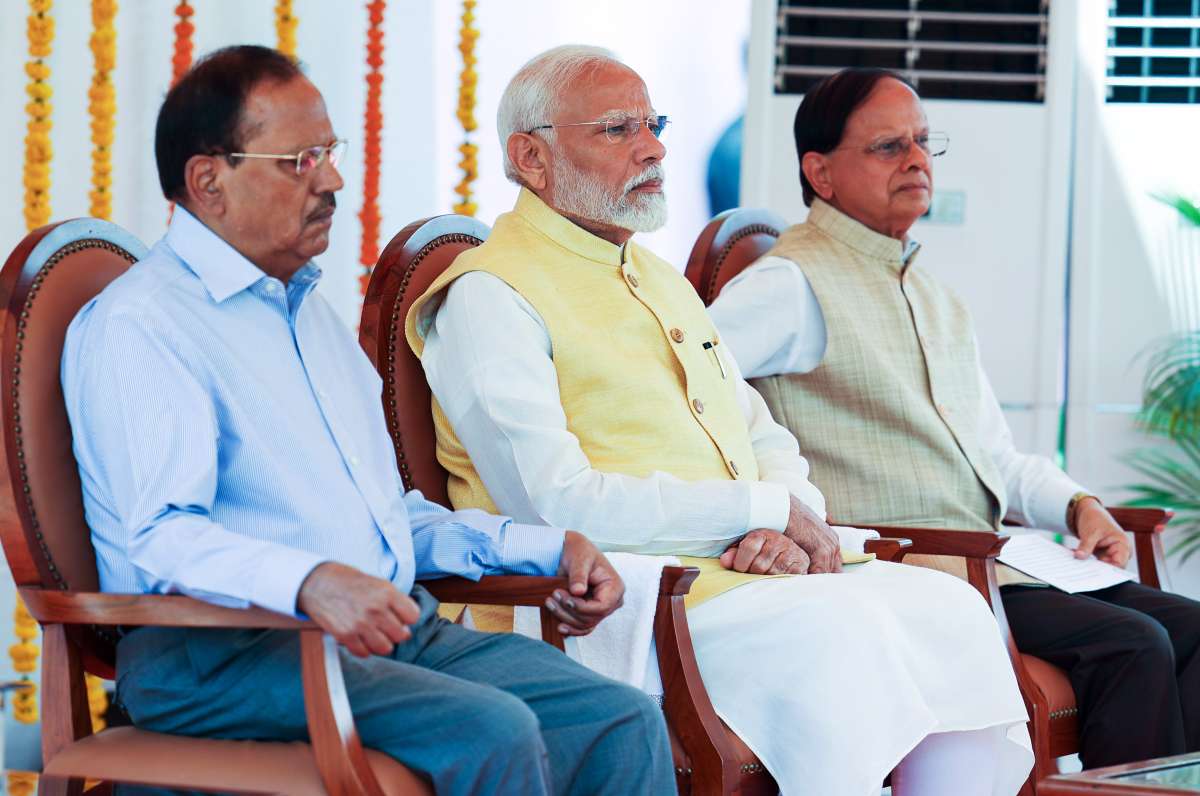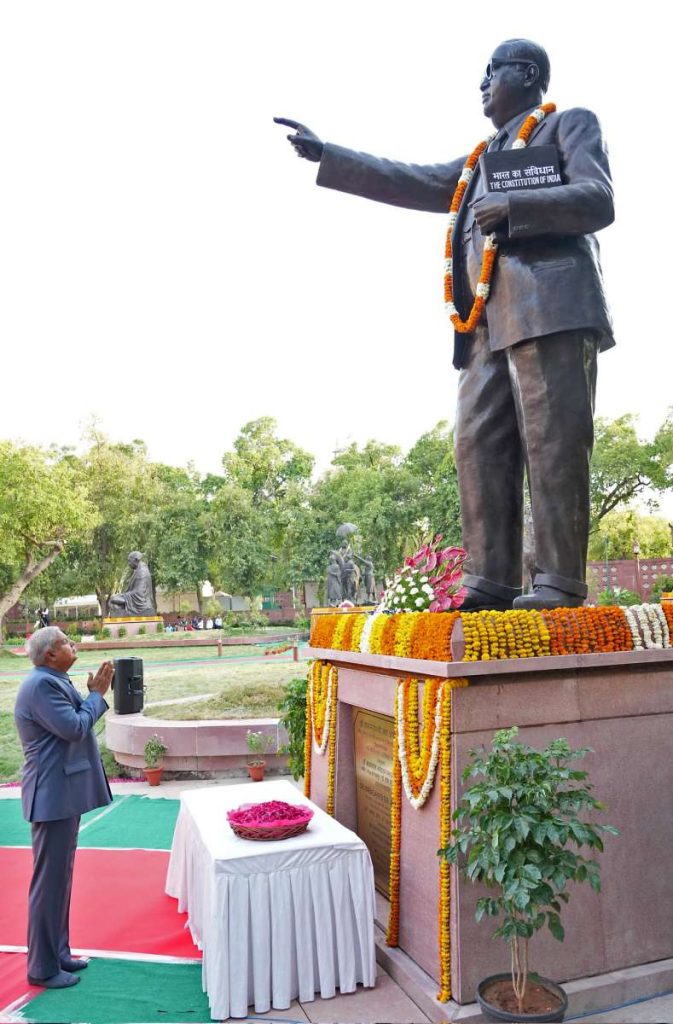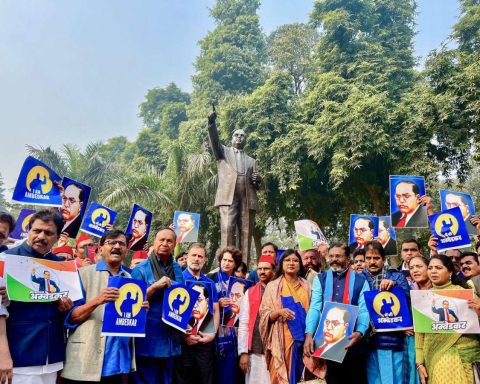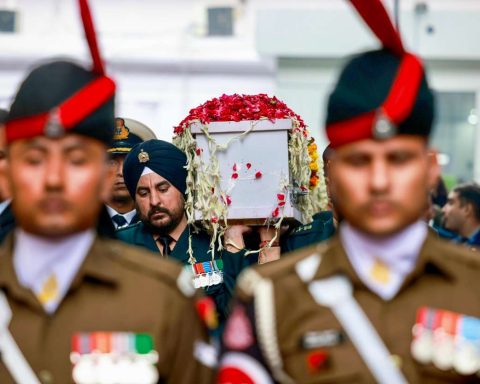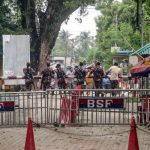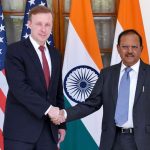The drone deal is part of the broader efforts to strengthen defence ties between the United States and India…reports Asian Lite News
Following the Critical and Emerging Technology initiative talks in New Delhi on Monday, India and the US released a joint fact sheet which highlighted the progress on MQ-9B acquisition, and on other defence cooperation sectors between the two nations.
The key points that were highlighted in the fact sheet were Significant Funding Commitments, NASA-ISRO Collaboration, Defence Space Technology, Telecommunications Advances, Semiconductor Partnership, Quantum and AI Cooperation amongst many.
“Welcoming the discussions on India’s planned acquisition of the MQ-9B platforms, the possible co-production of land warfare systems, and progress on other co-production initiatives outlined in the India-US Roadmap for Defense Industrial Cooperation,” the joint fact-sheet read.
Notably, India’s deal with the US of almost USD 4 billion, paving the way for the acquisition of 31 state-of-the-art MQ-9B Sky Guardian drones, will not only propel India’s defence capabilities but also ensure a 16-fold increase in the number of aircraft, significantly enhancing New Delhi’s maritime security beyond the current lease agreement.
The drone deal is part of the broader efforts to strengthen defence ties between the United States and India.
In June 2023, US President Joe Biden and Prime Minister Narendra Modi welcomed India’s plans to procure Predator drones made by General Atomics, a mega pact that will allow American Navy ships to undertake major repairs at Indian shipyards. President Biden and PM Modi welcomed India’s plans to procure General Atomics MQ-9B HALE UAVs.
The MQ-9Bs, assembled in India, will enhance the ISR capabilities of India’s armed forces across domains.
Meanwhile, the joint factsheet also mentioned the deepening cooperation between the US Defence Innovation Unit and India’s Innovations for Defense Excellence to accelerate the joint adoption of cutting-edge commercial technologies for military solutions.
“Celebrating the second edition of the India-U.S. Defense Acceleration Ecosystem (INDUS-X) Summit which took place in February this year and during which the two sides announced an INDUS-X Investor Summit that will take place in Silicon Valley in September 2024; the awarding of up to USD 1.2 million in seed funding to 10 US and Indian companies under Joint IMPACT 1.0 Challenges; the intent to launch two challenges focused on space-based intelligence, surveillance, and reconnaissance (ISR) under IMPACT 2.0; and the launch of an INDUSWERX Testing Consortium steered by industry, academia and non-profit organizations across India and the United States to promote access to testing and certification facilities,” according to the fact sheet.
The National Security Advisor (NSA) Ajit Doval and his US counterpart Jake Sullivan chaired the second meeting of the India-US initiative on Critical and Emerging Technology (iCET) in New Delhi.
The two leaders also noted progress in negotiations between GE Aerospace and Hindustan Aeronautics Limited for the co-production of GE F414-INS6 engines to power India’s future fighter fleet.
“Expanding defense industrial partnerships, such as the launch of an AI Multi-Doman Situational Awareness product jointly developed by General Atomics and 114ai to support joint all domain command and control,” the fact sheet stated.
Since the launch of iCET in January 2023, India and the United States have made significant strides toward deepening and expanding strategic cooperation across key technology sectors including space, semiconductors, advanced telecommunications, artificial intelligence, quantum, biotechnology, and clean energy.
During the second iCET meeting, NSA Doval and Sullivan set the vision for the next chapter of our strategic technology partnership.
The two leaders underscored their commitment to orienting cooperation around breakthrough achievements in priority critical and emerging technology areas, by focusing our efforts on co-production, co-development, and research and development (R&D) opportunities for a further boost to India-US ties.
They also welcomed the inaugural meeting of the India-US-ROK Trilateral Technology Dialogue held in Seoul in March, as well as ongoing cooperation with Australia and Japan through the Quad, according to the joint factsheet.
NSA Doval and US NSA Sullivan underscored the vital importance of adapting our technology protection toolkits and resolved to prevent the leakage of sensitive and dual-use technologies to countries of concern.
“They also committed to take concrete action in the coming months to address long-standing barriers to bilateral strategic trade, technology, and industrial cooperation, including in the commercial and civil space sector. They noted continued progress under the Strategic Trade Dialogue, which convened last June in Washington, D.C., as well as through an iCET intersessional review meeting held in New Delhi by our Deputy National Security Advisors in December 2023 to support these measures,” the fact sheet read.
They emphasized the need for continued efforts, particularly under the Strategic Trade Dialogue, to address outstanding barriers to technology collaboration, it added.
In addition to the iCET meeting, NSA Doval and his US counterpart Sullivan convened an industry roundtable that brought together CEOs and thought leaders from both countries as India and the United States mobilize private sector investment and partnerships across strategic technology sectors.
Sullivan calls on PM
Sullivan called on Prime Minister Narendra Modi and briefed him on the progress in various areas of bilateral cooperation, particularly under the Initiative on Critical and Emerging Technologies (iCET), on Monday.
After the iCET meeting with NSA Ajit Doval, US NSA Jake Sullivan briefed PM Modi on the progress in various areas of bilateral cooperation, particularly under the iCET, such as “semiconductors, Artificial Intelligence, telecom, defence, critical minerals, space, among others,” the Ministry of External Affairs said in a release.

PM met US National Security Advisor (NSA) Jake Sullivan on Monday and stressed India’s commitment to strengthen the India-US Comprehensive Global Strategic Partnership.
Modi took to X, stating that India is committed to strengthening the Comprehensive Global Strategic Partnership between the two countries for global good.
“Met US National Security Advisor @JakeSullivan46. India is committed to further strengthen the India-US Comprehensive Global Strategic Partnership for global good,” he said in a post on X.
Modi further expressed satisfaction at the speed and scale of the growing bilateral partnership in all areas and the convergence of views on regional and global issues of mutual interest.
He also recalled his recent positive interaction with US President Biden at the G7 Summit.
“PM reaffirmed commitment to continue to strengthen Comprehensive Global Strategic Partnership for the global good and take it to greater heights in the new term,” the release stated.
Earlier in the day, US NSA Sullivan and National Security Advisor Ajit Doval attended the annual meeting of the Initiative on Critical and Emerging Technology (iCET) between the two countries. The delegation-level talks were held in the national capital. (ANI)
ALSO READ-Jake Sullivan’s Delhi Visit Aims to Bolster US-India Relations

